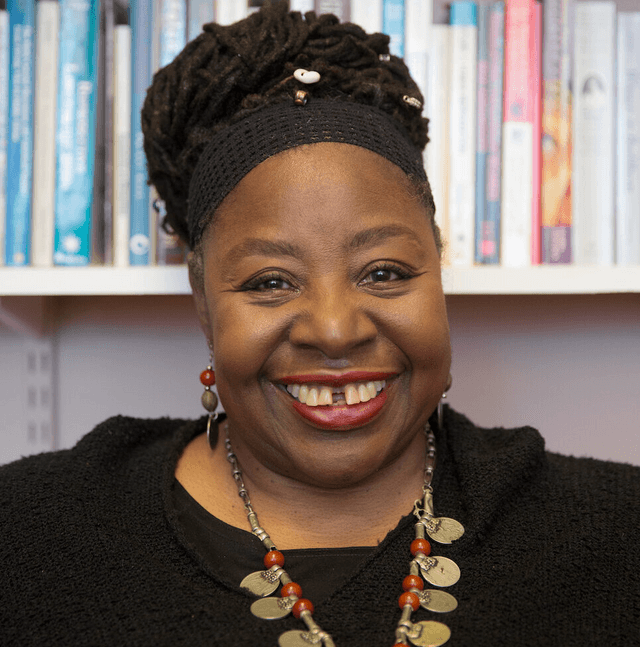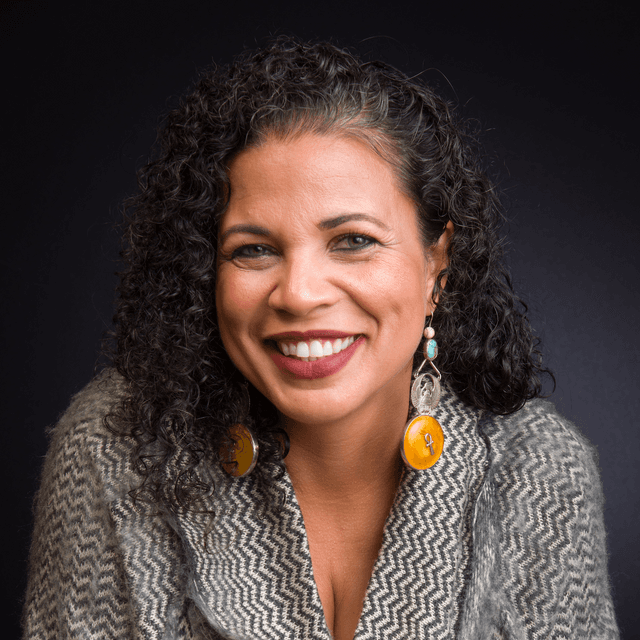Dr. Stacey Patton is an award-winning journalist, historian, child advocate, and nationally recognized speaker whose work sits at the intersection of race, trauma, education, and media. Known for her powerful storytelling and evidence-based insight, Dr. Patton delivers dynamic talks that challenge audiences to rethink how childhood adversity, especially abuse, neglect, and systemic inequality, shapes learning, behavior, and public life.
A professor of journalism at Howard University and research associate at Morgan State University’s Institute for Urban Research, she blends cutting-edge research in neuroscience, mental health, and trauma with lived experience as a former foster youth and survivor of abuse. Her talks equip educators, leaders, and institutions with tools for building trauma-informed, emotionally intelligent learning environments.
Dr. Patton is the author of That Mean Old Yesterday, Spare the Kids, and the forthcoming Strung Up: The Lynching of Black Children and Teenagers in America. Her writing has appeared in The New York Times, Washington Post, BBC, The Chronicle of Higher Education, and more. She’s been a featured commentator on CNN, MSNBC, Democracy Now!, and CBS. She is also the creator of When You Hit Me, a 3D animation app educating users on the neurological impact of stress and childhood trauma.
A recipient of numerous honors for her journalism and advocacy including William Randolph Hearst Foundation, Scripps Howard Foundation, Education Writers Association, and the National Association of Black Journalists, Dr. Patton is a catalyst for cultural reckoning and systemic change, offering unforgettable talks that blend deep expertise with lived experience, sparking reflection, dialogue, and action.
Teaching on Thin Ice: Trauma, Mindfulness & Emotional Safety in the Classroom
Today’s students are navigating deep stress, trauma, and dysregulation and they’re bringing it into classrooms. The interactive session will unpack the science of Adverse Childhood Experiences (ACEs), explore how trauma shows up in student behavior and engagement, and introduces trauma-informed, mindfulness-based teaching strategies that foster safety, presence, and connection, without turning faculty into therapists. Learn how to meet students where they are while protecting your own well-being and academic standards.
Your Brain Has Been Hacked: Rethinking Attention, Tech, and the Crisis of Digital Overload
Digital addiction is quietly reshaping student behavior, attention, and motivation. This dynamic workshop explores the neuroscience of digital addiction, unpacks how algorithms exploit dopamine pathways, and examines how this rewiring is contributing to rising rates of anxiety, depression, executive dysfunction, and even physical symptoms like headaches, insomnia, and chronic fatigue. Participants will also explore what colleges can do to respond and gain tools to spot digital dysregulation, foster attention, and build tech-conscious classrooms that support deep learning.
Reclaiming Your Sanity: Faculty Burnout, Emotional Exhaustion & How to Come Back to Yourself
Faculty are holding space for students, institutions, and curriculum, often while neglecting their own capacity to stay grounded. But what happens when the ones expected to hold the space are the ones who feel the most depleted? This healing-centered session is designed for educators who feel overwhelmed, emotionally fatigued, or quietly burning out. Participants will explore how chronic exposure to student stress, institutional chaos, and ongoing uncertainty impacts their own mental health, presence, and classroom climate. We’ll unpack the neuroscience of burnout, recognize the signs of compassion fatigue, and learn quick, sustainable micro-practices—breathing, boundaries, and resets—that help restore clarity, connection, and internal authority. This is not a workshop about self-care clichés. It’s about reclaiming your bandwidth, honoring your own emotional landscape, and showing up in ways that are both human and sustainable.
The Hidden Curriculum: Teaching Students How to Learn Again
Pandemic learning loss disrupted more than knowledge—it interrupted students’ cognitive, social, and emotional development. Many arrive on campus with serious gaps in executive functioning, self-regulation, and foundational skills for independent learning. This workshop explores what faculty often call the “hidden curriculum,” the unspoken academic, behavioral, and emotional skills students are expected to already know, but were never explicitly taught. From focusing through boredom to advocating for themselves or reflecting on failure, these are survival skills many students lack. Participants will discover how to integrate small, intentional “learning how to learn” moments into coursework without sacrificing rigor. You’ll gain practical strategies for scaffolding assignments, modeling metacognition, and shifting classroom culture from punitive to developmental, supporting students overwhelmed by tasks that once felt routine. Because if we want students to succeed, we can’t just teach the material. We have to teach them how to learn again.
Brain First, Then Behavior: A New Way to Talk About Student Accountability
Faculty and administrators are increasingly frustrated by what looks like student defiance, disengagement, entitlement, or emotional volatility—but these behaviors are actually signs of an overwhelmed brain struggling to cope. This workshop shifts the conversation from “What’s wrong with this student?” to “What’s going on in their brain?” Grounded in neuroscience, trauma-informed pedagogy, and emotional regulation, this session offers strategies to engage students in reflective, restorative practices that build self-awareness and agency, while helping educators navigate challenging behavior without taking it personally or becoming part of the chaos. We’ll also examine how rigid policies can retraumatize students or replicate harmful control systems, while lack of boundaries can create unsafe learning environments for everyone. This is not about lowering standards, it’s about applying brain science to create accountability through safety, clarity, consistency, and connection. For anyone ready to hold students accountable with compassion and rigor, this workshop offers a transformative path to classrooms that are both demanding and deeply humane.










